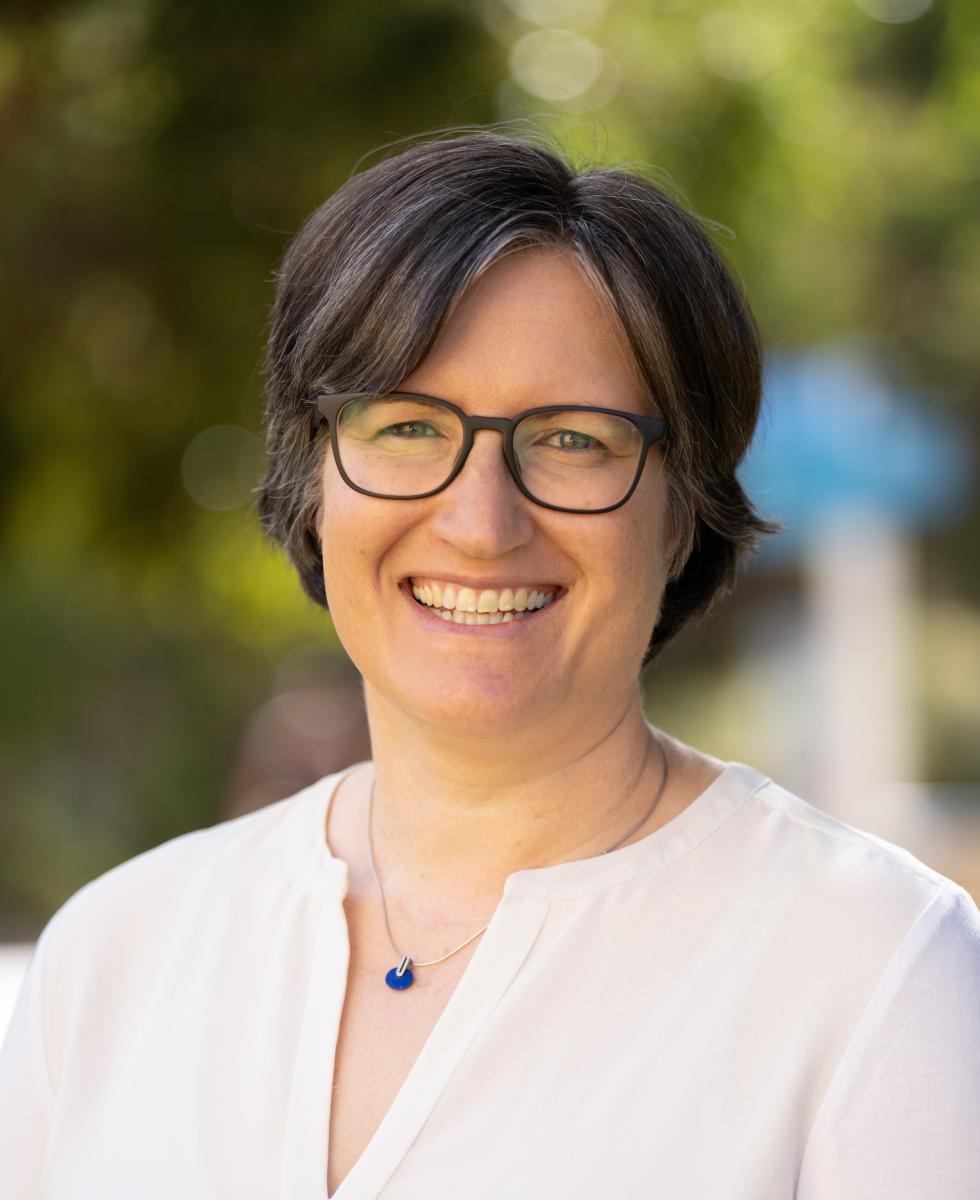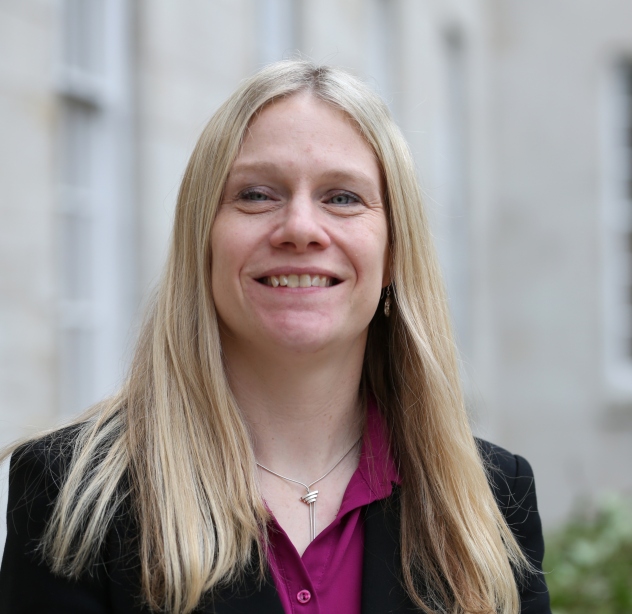Keynote speakers
Meredith Marra
|
|
Meredith Marra is Professor in Linguistics at Te Herenga Waka - Victoria University of Wellington. Since 2015 she has been Director of the Wellington Language in the Workplace Project (LWP), a long-standing sociolinguistic research project investigating effective workplace communication in a range of contexts. Meredith’s research focuses on gender, ethnic and leadership identities, particularly in the setting of meetings. She applies critical approaches to workplace talk to expose bias and discrimination. Her books include Negotiating Boundaries at Work: Talking and Transitions (2017, EUP), Leadership, Discourse, and Ethnicity (2011, OUP), and Constructing Identities at Work (2011, Palgrave Macmillan). |
Why is it still “women’s work”? The case of relational practice in the workplace
Two decades ago the Wellington Language in the Workplace Project team set out to challenge gendered assumptions about relational practice (small talk, storytelling, expressing approval, humour). We argued that stereotypical forms of relational practice (pejoratively associated with women) were not the only ways in which we saw people-oriented functions being enacted (Holmes and Marra 2004). We were motivated by Fletcher’s (1999) description of these practices as ‘disappearing acts’ and the potential impact of the normative conceptualisation she identified to reinforce gender and power injustices.
While there is now more widespread recognition of the important contribution of relational practice to effective workplace interaction, certain instantiations still appear to be understood as peripheral and othered through their gendered associations. In the past year we have experienced a marked increase in questions from the general public and media about small talk (a noticeable discourse activity for non-specialists). This interest has sent us back to the data to find evidence in practices.
Our current focus is leadership where the relevance of people-focused behaviours is well established (e.g. as a component of transformational leadership (Bass 1990)). Moving beyond dominant, majority group contexts (where the crucial role of relational work is seldom recognised) we find plenty of evidence of relational practice as core to effective business practice. As a specific example, in the Māori contexts in which we have collected data over many years, relationally-focused strategies can be characterised as positive leadership practices that are considered culturally-appropriate. If small talk is already arguably undervalued as women’s work, what does that mean for Māori leaders who are further marginalised within wider society?
In this talk I will demonstrate the centrality of relational practice and its differing enactments across workplaces, as well as troubling the ongoing gendered conceptualisation of appropriate leadership talk that creates bias against anyone outside the hegemonic norms.
References
Bass, Bernard M. 1990. From transactional to transformational leadership: Learning to share the vision. Organizational Dynamics. 18 (3): 19–31. doi:10.1016/0090-2616(90)90061-S.
Holmes, Janet and Meredith Marra 2004. Relational practice in the workplace: women's talk or gendered discourse? Language in Society 33: 377-398.
Fletcher, Joyce K. 1999. Disappearing Acts: Gender, Power and Relational Practice. MIT Press
Louise Mullany
|
|
Louise Mullany is Professor of Sociolinguistics at the University of Nottingham UK. She has researched language and gender in the workplace for the last 25 years and published a number of books, articles and chapters with international publishing houses. She is founder and director of Linguistic Profiling for Professionals, a research centre and business unit at the University of Nottingham. She has delivered research-based consultancy and training on diversity and inclusion to over 300 businesses and organisations. She leads the global Language, Gender and Leadership Network, funded by the Arts and Humanities Research Council. She has worked with the UK Law Commission, Government and police forces on hate crime in public spaces, including workplaces. She was winner of a Times Higher Education Award for Outstanding Contribution to the Local Community in 2021 for her joint interdisciplinary work on gender-based violence and public sexual harassment. Recent books include Globalisation, Geopolitics and Gender in Professional Communication (with Stephanie Schnurr, Routledge) and Professional Communication: Consultancy, Advocacy, Activism (Springer). She is Commissioning Editor for Routledge New York’s monograph series, Applied Professional Communication. |
The sociolinguistics of identity, public sexual harassment and creating sustainable organisations
This talk draws on a series of recent research projects on organisations in different global settings where the lived experiences of those who have been victims of sexual harassment, bias and discrimination in workplaces and public spaces are examined. Data are taken from interviews, focus groups, surveys and cyberspace. From an applied sociolinguistic perspective, I firstly focus on the language used by participants to tell narratives of personal and vicarious experience of gender-based violence and harassment, including the use of violent and abusive language. I examine participants’ representations of their perceived identities in public spaces and within workplaces, including the intersections of race, ethnicity, gender, sexuality and age when they become victims of harassment and violence. Secondly, I focus in detail a case study of the effectiveness of a language policy change by Nottinghamshire Police to make ‘misogyny’ a hate crime, the first police force in the world to do so. This was part of the Force’s commitment to attempt to eradicate public sexual harassment and create a more sustainable place to live and work.
I will then move on to discuss how these research findings are being used to influence public policy, as well as creating a series of practical resources designed to bring about sustainable organisations in future, including adapting sociolinguistic research findings to create educational training resources. The critical role of involving people of all genders will be discussed, as part of a wider debate about how sociolinguistic research on language, gender and sexuality can result in academics working as activists and advocates for the groups within whom they collaborate, to attempt to bring about sustainable change. Future directions for how different organisational cultures can address global gender-based violence and sexual harassment will be considered as part of attempting to create a sustainable future within the organisations where we live and work.
Verena Thomas
 |
Verena Thomas is Professor in Communication and Associate Dean Research at Edith Cowan University. With a background in documentary filmmaking, Verena’s work focuses on creative research approaches and communication for social change in international development contexts. She has led numerous award-winning research and production projects with donors, government and NGO partners in the areas of health communication, gender-based violence and education. Verena facilitates participatory research processes in collaboration with community groups and works with institutions and organisations that want to strategically integrate creative approaches into social change programs. Her publication record involves a wide range of collaborations including filmic and visual outputs co-created with community groups. |
The Power of the Word (and Image): Challenging gendered representations of violence in the Pacific
Different forms of violence across the Pacific region have been legitimised by harmful gendered narratives. Violence against women and girls is often linked to discriminatory social and cultural norms. Further, in Papua New Guinea (PNG), the collective nature of accusations of sorcery, targeting vulnerable people within the community, have made it challenging to address such violence. Human rights activists and women-led groups have been actively disrupting these narratives, by engaging with cultural symbols for collective peacebuilding and conflict resolution. Despite the success of these movements in achieving policy shifts with regards to women’s rights, the representation of violence in reporting and in public media continues to be problematic. Reports on violence against women and girls in many cases reinforce survivors of violence as victims and raise ethical and safety concerns for those involved.
In my presentation I will share experiences from projects in PNG that worked to address gender-based violence and violence related to sorcery accusations, and to shift victimisation narratives towards localised solutions and engagements. Working with human rights activists and women-led community organisations we applied creative participatory processes to capture diversified representations. Utilising approaches such as photovoice, digital storytelling and filmmaking I discuss alternative representations based on local indigenous principles and values, significant for understanding the multi-layered interpretations of gendered narratives across different regions in PNG.
I will demonstrate how the engagement and capacity building in active storytelling and participatory media production can generate advocacy outputs with community-based organisations and provide a significant component towards the impact and sustainability of these organisations. Our work demonstrates how such representations can support the development of national policies and bring on board government and international partners to engage in strength-based and diverse perspectives to support gender equality.



